Pushing forward towards a sustainable CBFM despite challenges: Three Diamond’s Story of Resilience
By Ruth Siringan

Three Diamond Upland Farmers and Developers Association board members and Mabuwaya Foundation’s story gathering activity facilitated by NTFP-EP Asia last May 7, 2024 in Santa Margarita, Baggao, Cagayan Valley (Source: Domingo Balanza Jr.)
Three Diamond Upland Farmers and Developers Association (Three Diamond) is a Community-based Forest Management People’s Organization (CBFM-PO) in Santa Margarita, Baggao, Cagayan Valley. They were one of the CBFM-POs that were awarded with start-up grants for their green community enterprises in Sierra Madre and Palawan in 2022, under the Assessing, Engaging and Recognizing Community-based Forest Management towards Nationally Determined Contributions in the Philippines or the ASSERT-CBFM in NDCs Project (hereinafter called as ASSERT-CBFM). They proposed on making soft brooms and bayong bags from tiger grass and pandan species (locally known as sarakat and pataga). Their CBFM area originally covers 5,035 hectares encompassing three barangays, including a CADT area, but after renewal only Santa Margarita will remain. The area managed by Three Diamond has zones dedicated for ecotourism, forestland with reforestation projects, including intercropping of cacao and coffee, as well as areas for vegetable gardening and other upland agricultural activities.
Ecosystem Services and Ecosystem-based Adaptation (EbA) Activities
They emphasized the importance of reforestation and protecting the remaining natural forest during the El Niño season. Due to drought, there is difficulty for agricultural products to survive, so the forest helps in providing another source of food and a source of livelihood from cacao processing and handicrafts from tiger grass, sakarat and pataga. Jovilyn C. Mamauag from Mabuwaya Foundation – one of the non-government organizations (NGO) providing support to Three Diamond – adds that because the forest is still intact, various species of birds have been sighted in the CBFM area. Members of Three Diamond act as wildlife enforcement officers (WEO), wherein they are authorized to report and monitor people doing illegal activities inside the CBFM area. Since being founded in 2018, they have continuously done reforestation work together with different government agencies such as the DENR, Department of Agriculture, and the Philippine Coconut Authority, as well as NGOs like Mabuwaya Foundation. Through Mabuwaya Foundation, they were granted twenty-six hectares for planting cacao, and ten hectares for coffee.
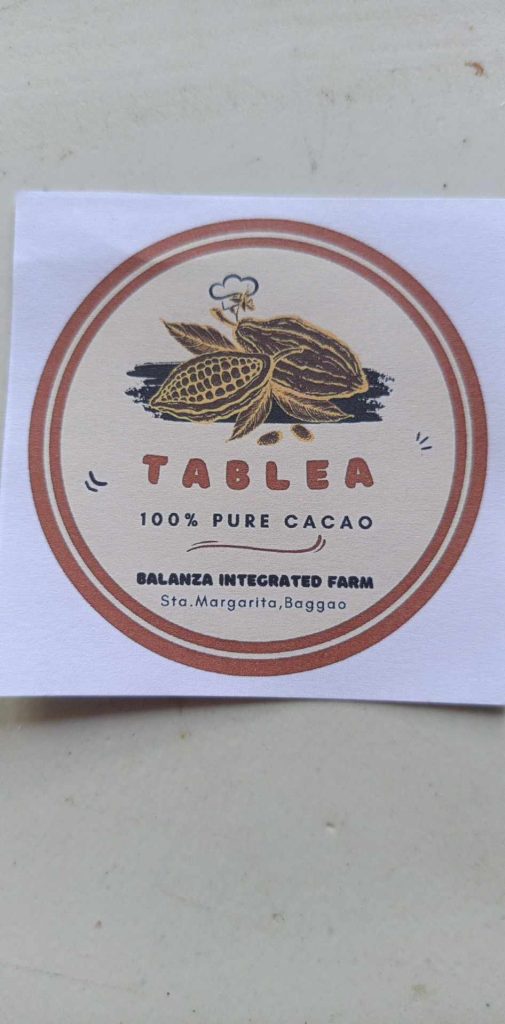
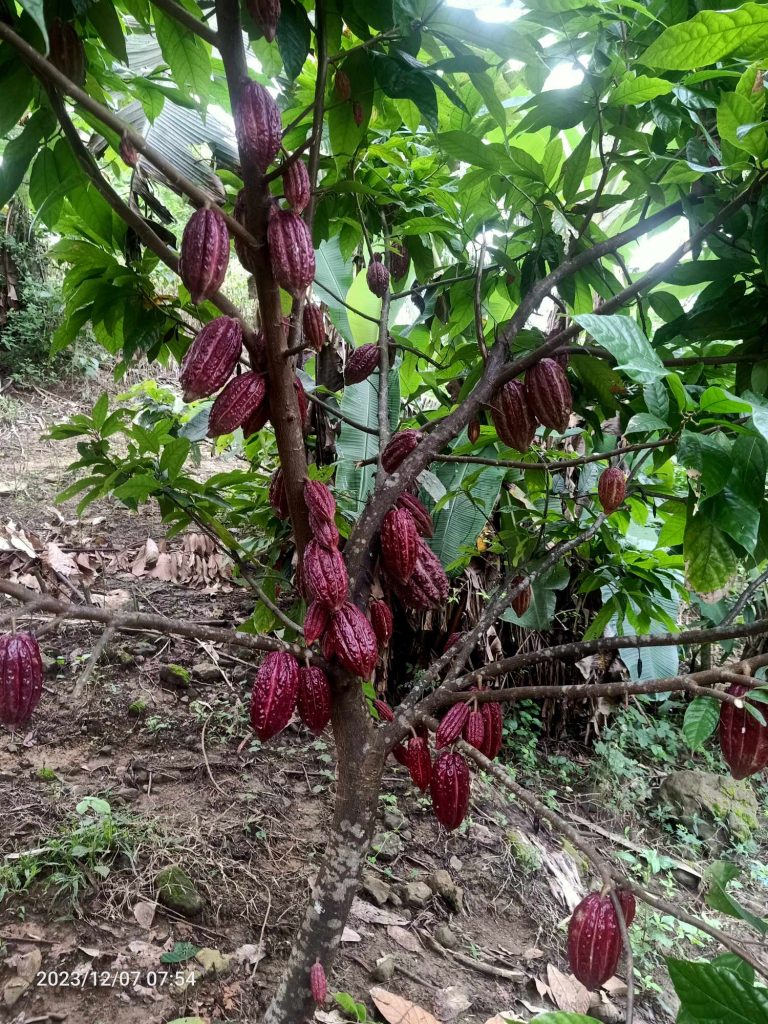
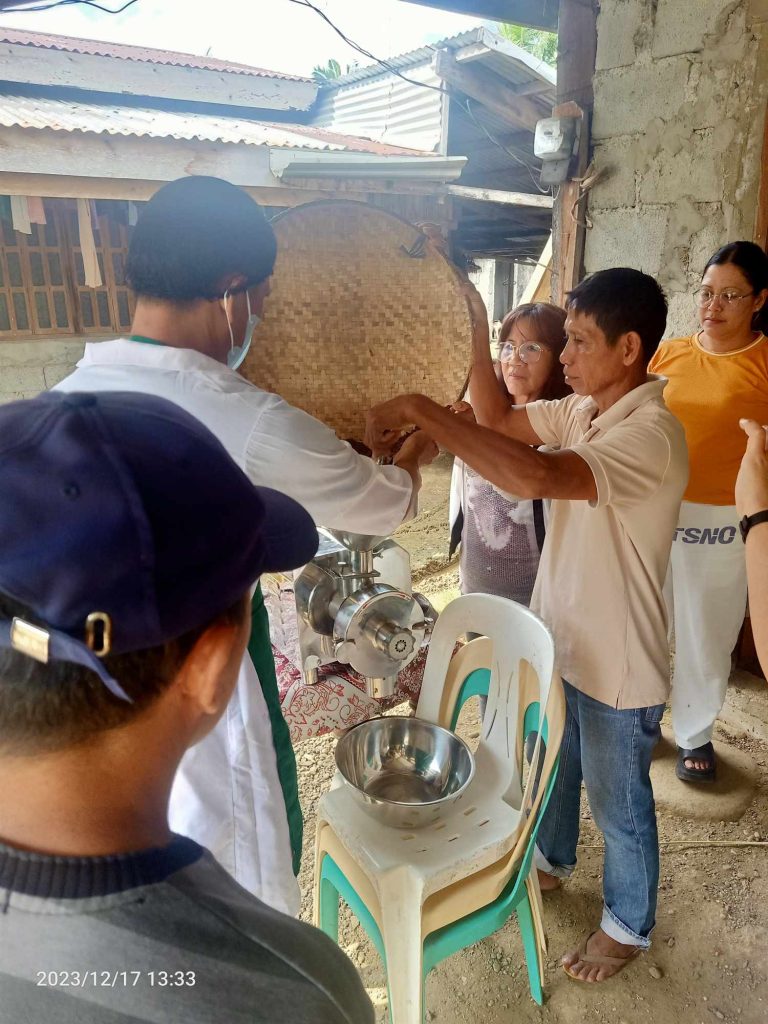
L-R: Branding of Three Diamond’s Tablea product; cacao plant in the CBFM area; Three Diamond members participating in cocoa processing training (Source: Domingo Balanza Jr.)
ASSERT-CBFM Project: Challenges and Changes
While they are able to manage and implement several ongoing projects, the green community enterprise project that they were supposed to implement under ASSERT-CBFM was faced with major challenges such as being unable to access the project site due to an armed encounter that occurred inside the CBFM area, and clearing operations are still being conducted by the military. A second major challenge was the renewal of their CBFM agreement, since the agreement expired last September 28, 2023. While they faced these challenges, they were still able to start training soft broom and bayong bag weavers last November 2023 and some of the weavers are already making small volumes of handicrafts.
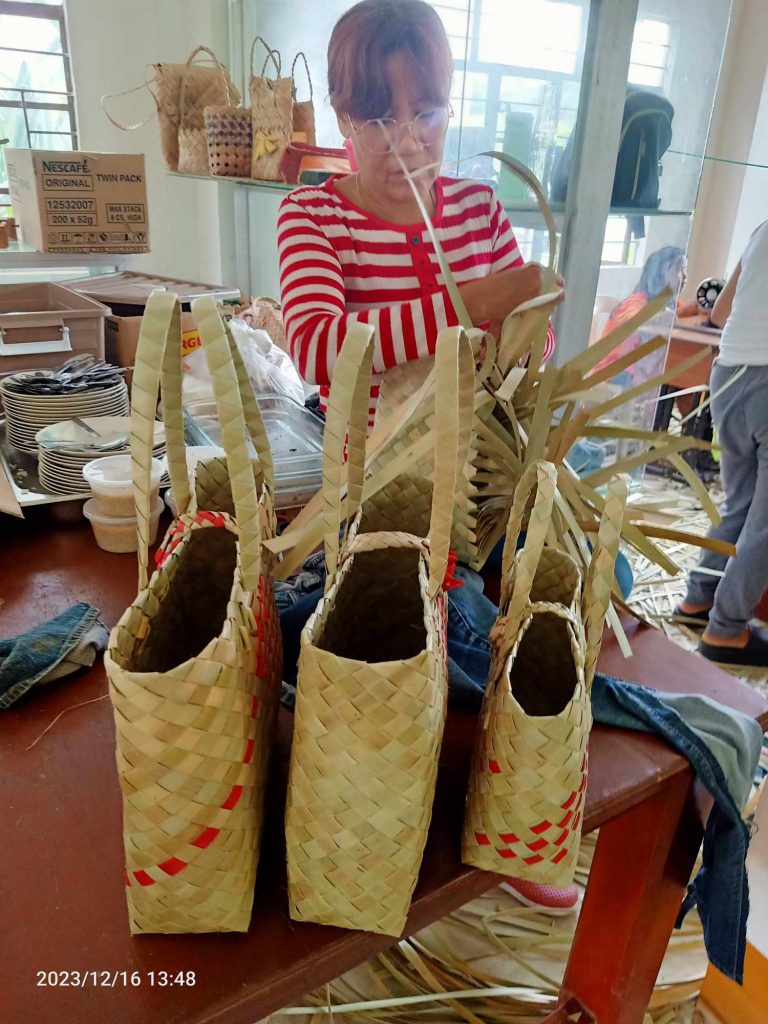
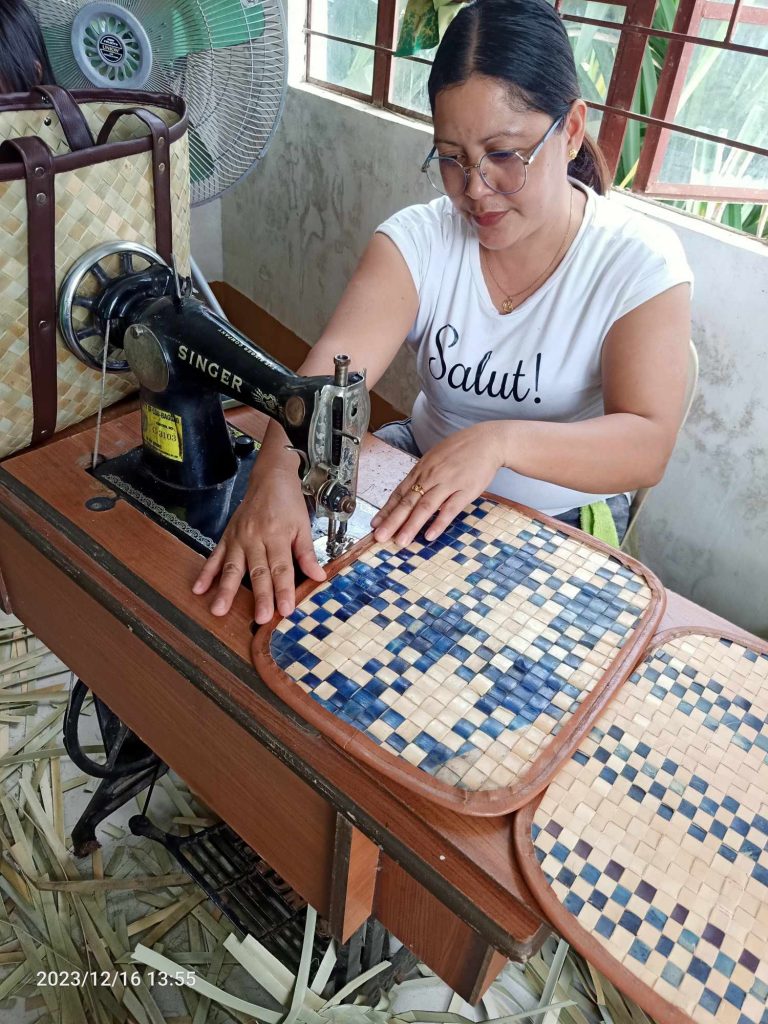
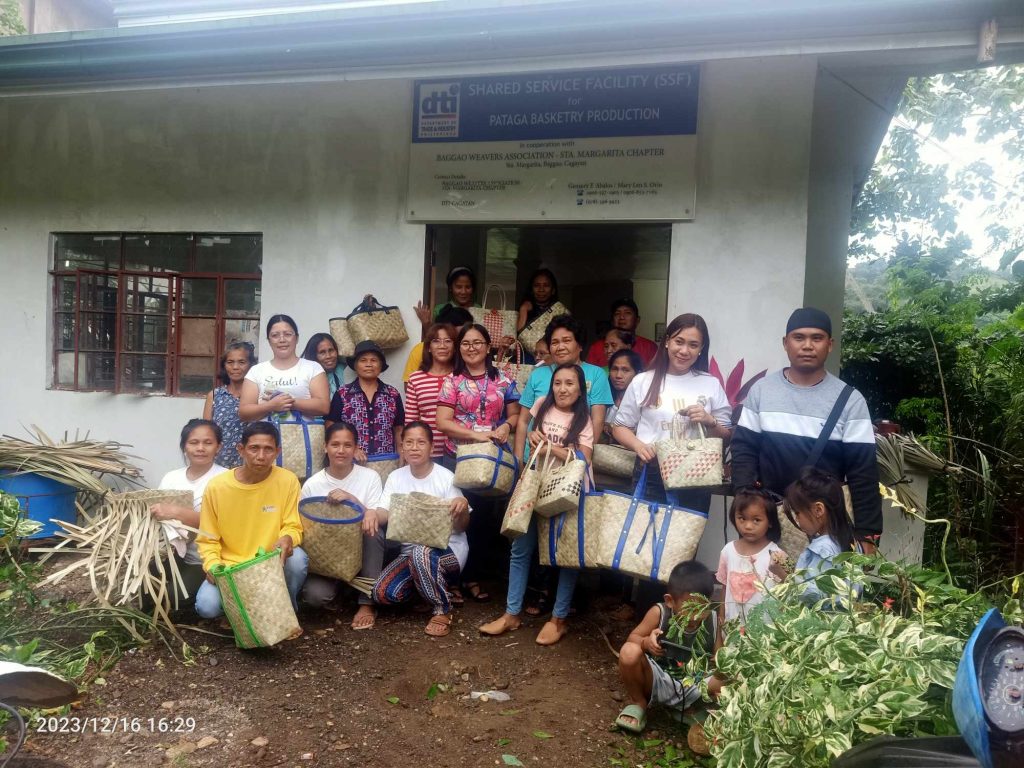
Training on pataga handicraft weaving (Source: Domingo Balanza Jr.)
And since the production volume for the handicrafts is limited, they decided to not yet use the funds from ASSERT CBFM. They plan to proceed with the project once their CBFM agreement is renewed and have completed the necessary certifications required to expand their market. Domingo D. Balanza Jr. or Manong Dong, chairperson of Three Diamond, states that when they made the proposal for the soft broom and bayong project, they were also not able to include the community resource management framework in the proposed five-year plan.
While their project with ASSERT-CBFM faced challenges in terms of security, expiration of their agreement, which limited their group’s mobility and marketing expansion, they were still able to continue their EbA activities. They have been supplying vegetables to Kadiwa stores in their municipality. Manong Dong states their products have Good Agricultural Practice (GAP) certification, and when the customers know that the products are GAP certified, they buy it since it is safe to consume. Their children were also granted with free education to learn coconut farming by the PCA. Manong Dong shares that the most successful activity of their PO is cacao processing, since even with limited volume of production and limited access to their land, they are able to market their tablea products locally. Through DENR, they were able to purchase equipment for cacao processing. This led to them attend trainings on cacao processing as well as using cacao seedlings in reforestation through Mabuwaya foundation. Jovy shared that Three Diamond has been acknowledged as a successful implementor of CBFM, within and beyond region 2. Manong Dong was also tapped as lecturer in different areas because of the successful implementation of their projects in the CBFM site.
For now, they are processing cacao in Manong Dong’s house, but they are planning to source for funds for the cooperative’s processing facility and to complete the requirements to expand their market.
Even though their project with ASSERT-CBFM was put on hold at the moment, the learnings they gained from the trainings, as well as the challenges in project implementation have equipped and strengthened their group, especially in continuing the EbA activities that they are implementing. Through the trainings, they learned the importance of building teamwork in an organization, how to motivate the members and resolve conflict. The benchmarking activities that they participated in also gave them new insights, although it was difficult for them to apply it in their area due to the security issues.
Through the various EbA activities that their PO have been conducting (within and beyond ASSERT-CBFM), they have mobilized women, youth and entire families to participate. In fact, the youth are even the ones initiating questions and researching further about the benefits that you can get from reforestation, planting native trees, as well as cacao. Furthermore, the women in their community became actively engaged in the EbA activities, through the processing of cacao, as well as vegetable gardening. Even if they have limited access to gather resources from their CBFM area for now, they are still able to have an alternative source of food and livelihood through vegetable gardening.
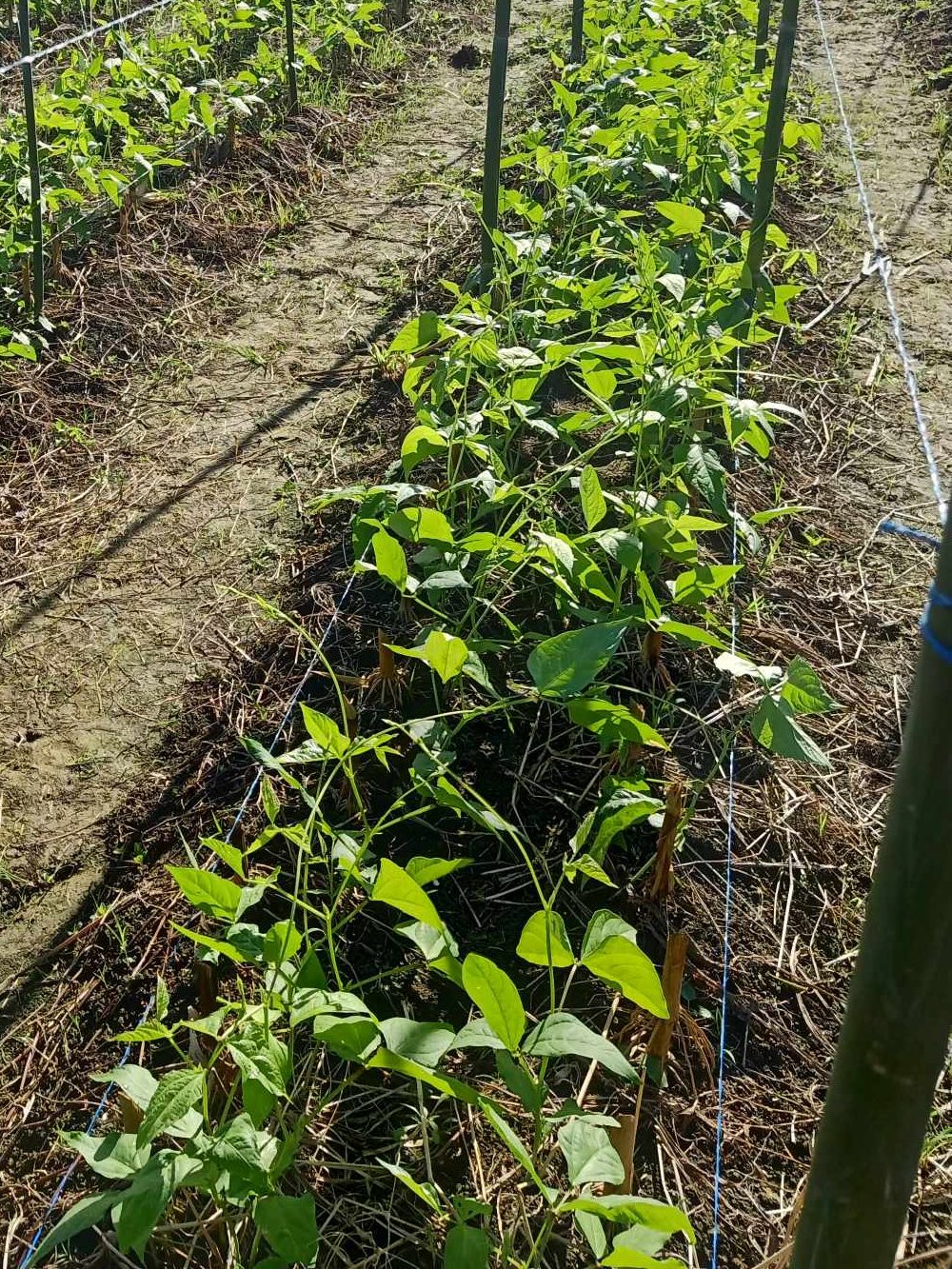
Three Diamond’s vegetable garden (source: Domingo Balanza Jr.)
Their activities as a CBFM-PO have also changed the mindset of the people in their community, especially towards reforestation. At first there were a lot of people who doubted them, since people wanted “easy money” and were impatient to wait for the results of planting seedlings, as board member Robert Balidoy, emphasized.
Genalyn Liban, also one of the group’s board members, adds that people did not believe them at first that they would get any benefit from planting cacao. But now people around them are witnessing that they are already harvesting and processing cacao into chocolate.
At present, people in their community are the first to approach the group not only regarding EbA activities, but also in other matters concerning their barangay. As WEOs, people around them know they have authority to report those who are doing illegal activities in the CBFM area. Board member Alexander Alvarez also mentioned that they have also completed trainings on environmental law enforcement.
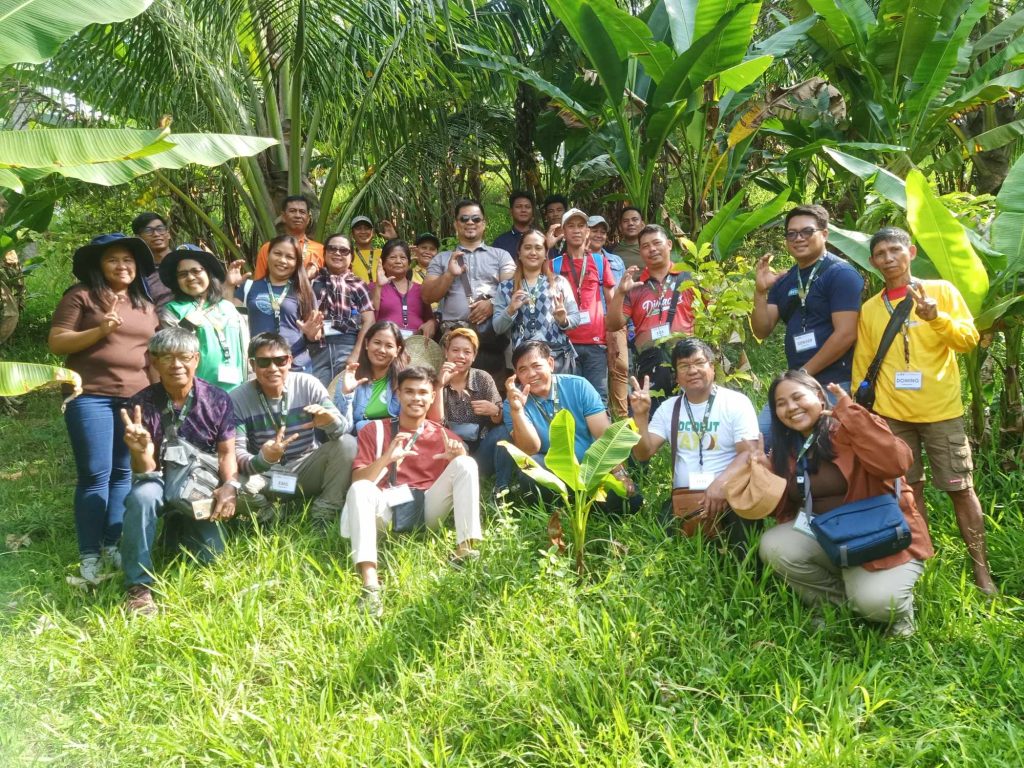
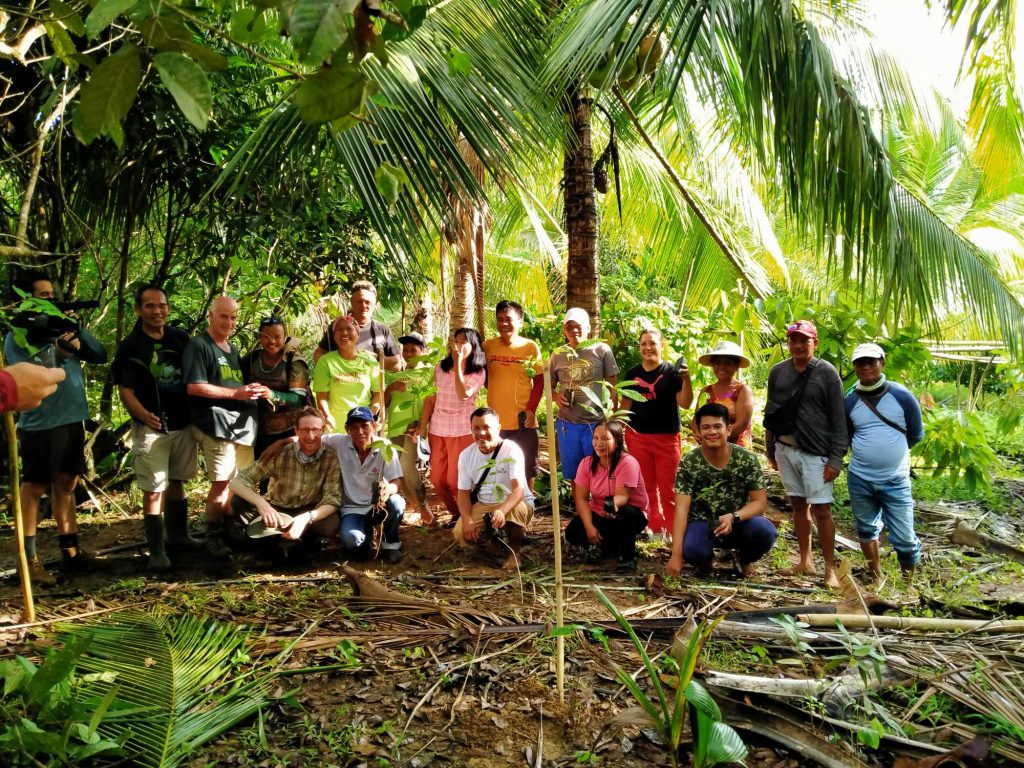
Participating in reforestation activities (Source: Domingo Balanza Jr.)
Their EbA activities as a CBFM-PO has also proven to be more important than ever, especially now during the El Niño season. Manong Dong shared that the people around them have realized the danger of monocropping and the use of pesticides that contributes to the degradation of land and biodiversity, worsening the effects of climate change. He shared that he was also once a “destroyer” who only planted corn. He learned from his experience that people would not believe what you “preach” if they don’t see changes in your life. That is why his land is not a corn plantation anymore, but a learning site for agriculture. Instead of abusing the environment because of our greed, people should give back good things to the land and not let it be degraded, Manong Dong emphasized.
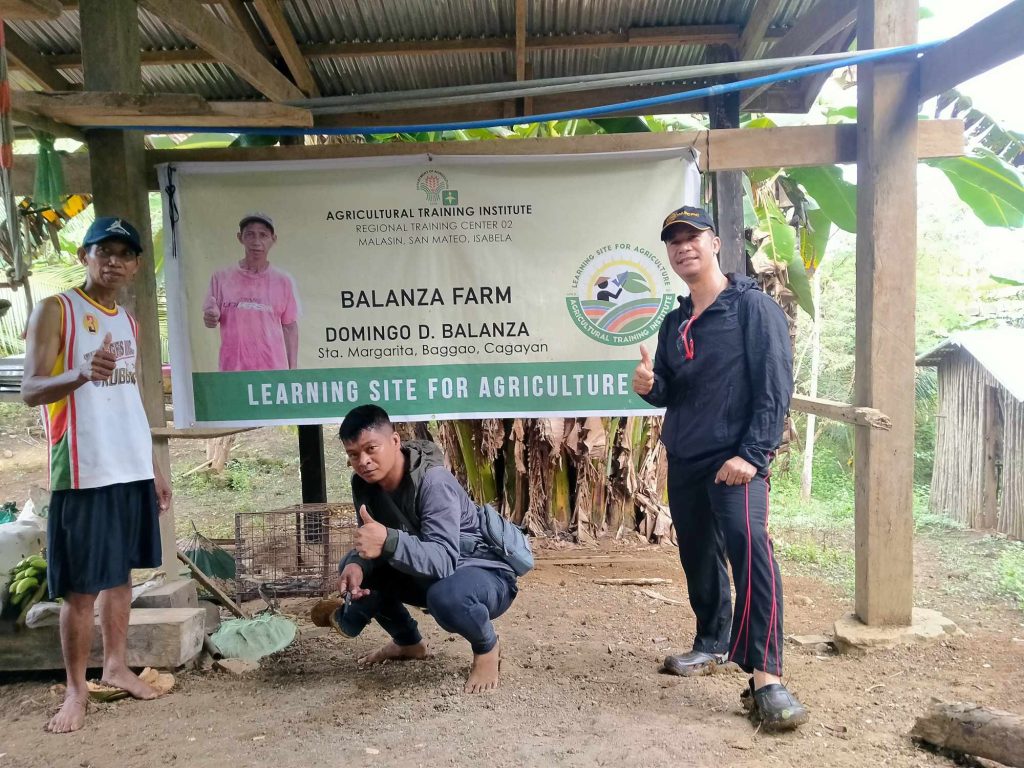
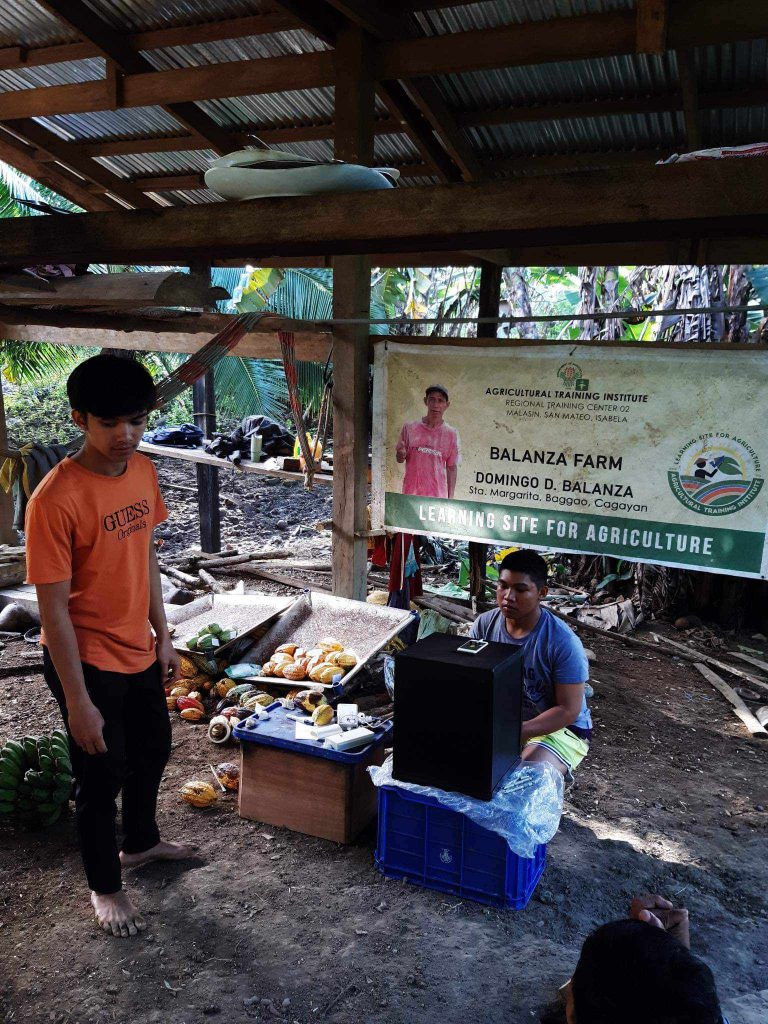
Learning visits conducted in the area (Source: Domingo Balanza Jr.)
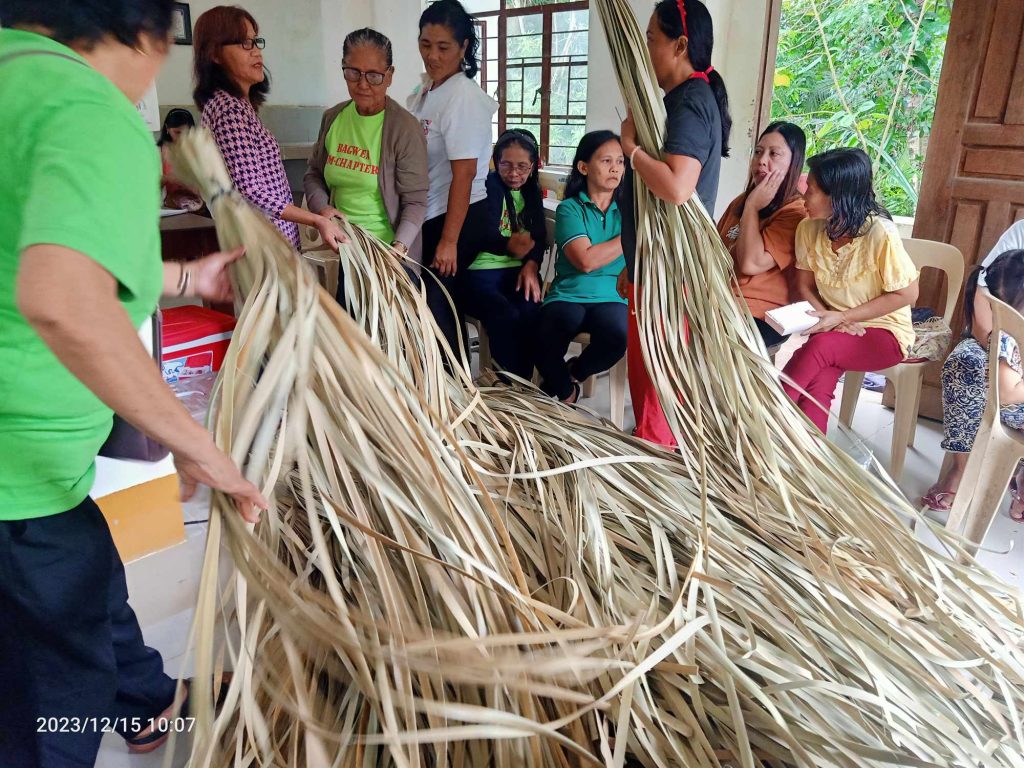
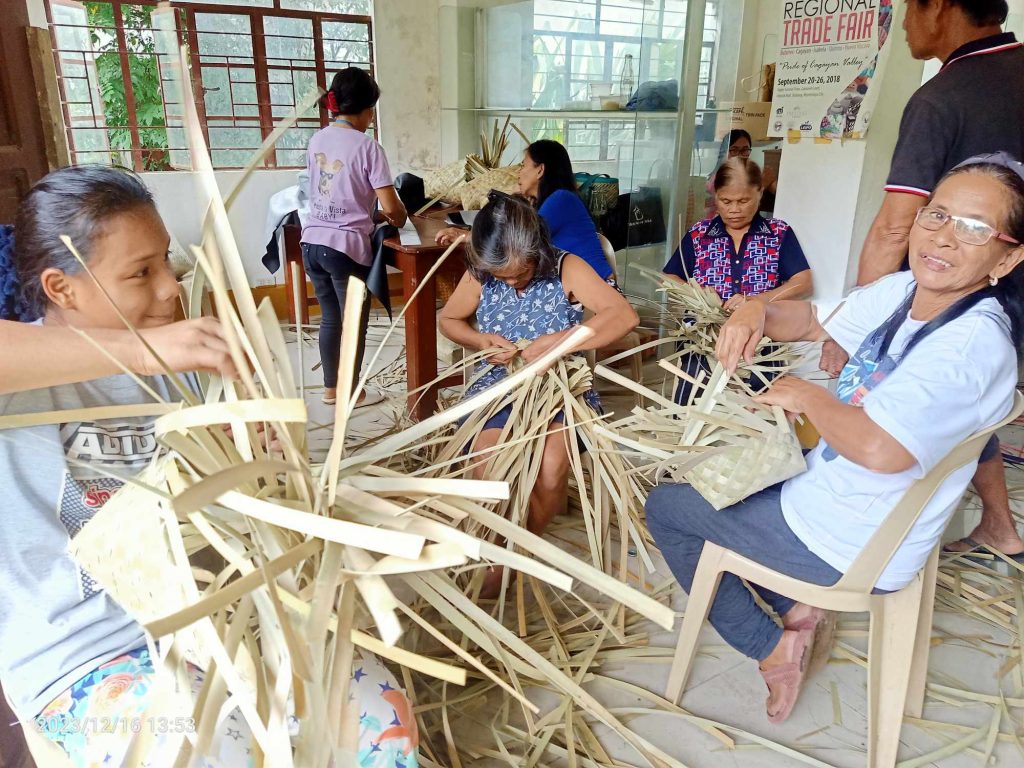
Women from Santa Margarita participating in sarakat bayong bag weaving (Source: Domingo Balanza Jr.)
After the renewal of their CBFM agreement, and as the security issues are resolved, the group is planning to establish their processing facility for their cacao processing activities, as well as a weaving facility for their bayong and broom products.
ASSERT-CBFM was a 32-month project funded by the Forest Foundation Philippines, aiming to enhance Community-Based Forest Management (CBFM) in relation to Nationally Determined Contributions (NDCs) in the Philippines. The project focused on assessing, engaging, and building the capacity of CBFM stakeholders through collaborative learning and knowledge exchange. It also aimed to formulate and elevate policy recommendations to national mechanisms on NDCs. Implemented by NTFP-EP Asia and its partners, the project ran from 2020 to 2022. ASSERT-CBFM 2, a nine-month continuation, documented lessons from CBFM organizations that received small grants for ecosystem-based adaptation and green business initiatives, awarding a total of PhP1,850,000 to ten organizations.



